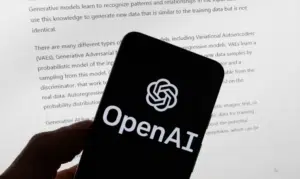Prominent figures in the tech industry shifted their stance on artificial intelligence (AI). Once strong advocates for stringent AI regulation, they are now calling for a more measured approach. The message has changed from demanding immediate regulation to urging a slowdown in AI development.
Thank you for reading this post, don't forget to subscribe!The Initial Call for AI Regulation
In the past few years, tech leaders like Elon Musk, Bill Gates, and Sundar Pichai have voiced concerns about AI’s rapid development. They feared that without proper oversight, AI could pose significant risks. Their calls for regulation were based on potential issues such as job displacement, privacy invasion, and even existential threats to humanity.
The Shift to ‘Slow Down’
However, recent statements from these leaders indicate a change in their perspective. They now advocate for slowing down AI development rather than immediate regulation. This shift is rooted in the belief that a more gradual approach allows for better understanding and control of AI’s implications.
Understanding the Reasons Behind the Shift
Several factors have contributed to this change in stance. Firstly, the pace of AI development has outstripped the ability of regulatory bodies to keep up. Secondly, there is a growing recognition of the complexities involved in regulating such a rapidly evolving technology. Lastly, there is an acknowledgment of the potential benefits of AI that could be stifled by hasty regulation.
The Role of Government and Policy Makers
Tech leaders now urge governments to take a more cautious and informed approach. They recommend the establishment of advisory panels and think tanks to study AI comprehensively. By doing so, policymakers can create regulations that are both effective and flexible, adapting to new developments as they occur.
The Importance of Collaboration
Collaboration between tech companies, governments, and academia is seen as crucial. Joint efforts can ensure that AI is developed responsibly. This includes setting ethical standards, ensuring transparency, and fostering innovation while safeguarding public interest.
Public Concerns and Perception
Public opinion on AI varies widely. Some people embrace the technology for its potential to revolutionize industries and improve quality of life. Others fear the loss of jobs, privacy issues, and the possibility of AI systems behaving unpredictably. Tech leaders acknowledge these concerns and stress the importance of public engagement in shaping AI policies.
Balancing Innovation and Safety
One of the biggest challenges is finding the right balance between innovation and safety. Slowing down AI development doesn’t mean halting progress. Instead, it involves setting a pace that allows for thorough testing and evaluation. This approach aims to minimize risks while maximizing benefits.
The Potential Risks of AI
The risks associated with AI are not just theoretical. There have been instances of AI systems making biased decisions, invading privacy, and even malfunctioning in critical situations. These examples highlight the need for careful oversight and regulation to prevent harm.
The Benefits of AI
Despite the risks, AI holds immense potential. It can drive advancements in healthcare, education, transportation, and more. AI can help diagnose diseases, personalize learning experiences, optimize logistics, and enhance productivity. These benefits underscore the importance of continuing AI development, albeit at a more controlled pace.
Ethical Considerations
Ethical considerations are at the forefront of the AI debate. Ensuring that AI systems are fair, transparent, and accountable is essential. Tech leaders advocate for ethical guidelines that can guide AI development and deployment, protecting individuals and society as a whole.
The Future of AI Regulation
Looking ahead, the future of AI regulation remains uncertain. It is likely to involve a combination of international cooperation, national policies, and industry self-regulation. The goal is to create a regulatory framework that is robust yet adaptable, and capable of addressing the unique challenges posed by AI.
Conclusion
The shift from demanding immediate AI regulation to advocating for a slowdown reflects a nuanced understanding of the challenges and opportunities presented by AI. Tech leaders recognize the need for a balanced approach that safeguards against risks while fostering innovation. As AI continues to evolve, so too must our strategies for managing it, ensuring that its development benefits all of humanity.
FAQs
Why have tech leaders changed their stance on AI regulation?
Tech leaders have shifted their stance due to the rapid pace of AI development, the complexities of regulation, and the recognition of AI’s potential benefits.
What do tech leaders now recommend regarding AI development?
They recommend slowing down AI development to allow for better understanding and control, and they advocate for collaborative efforts between tech companies, governments, and academia.
What are the potential risks of AI?
AI can pose risks such as biased decision-making, privacy invasion, and malfunctions in critical situations. These risks necessitate careful oversight and regulation.
What benefits does AI offer?
AI has the potential to revolutionize healthcare, education, transportation, and more by diagnosing diseases, personalizing learning, optimizing logistics, and enhancing productivity.
What is the importance of ethical considerations in AI development?
Ethical considerations ensure that AI systems are fair, transparent, and accountable, protecting individuals and society as a whole.











